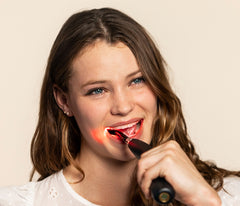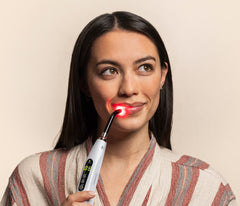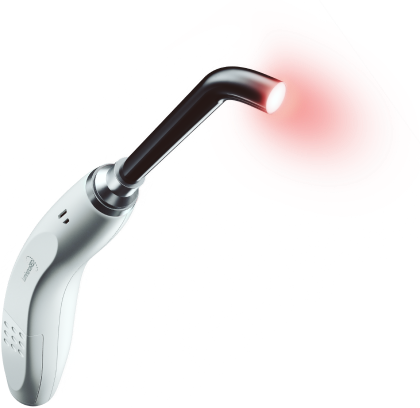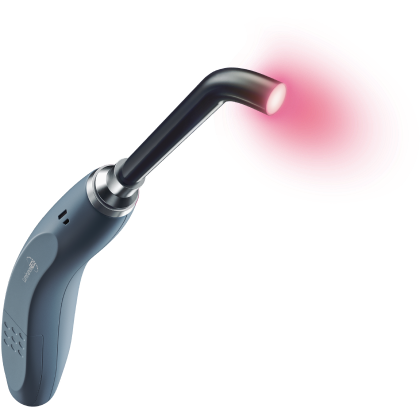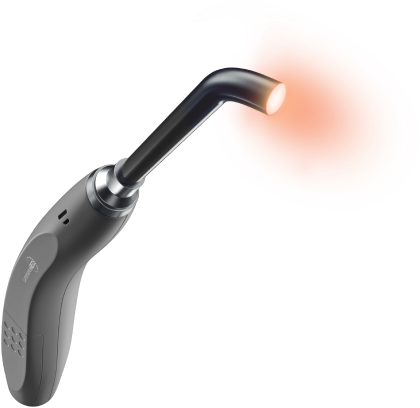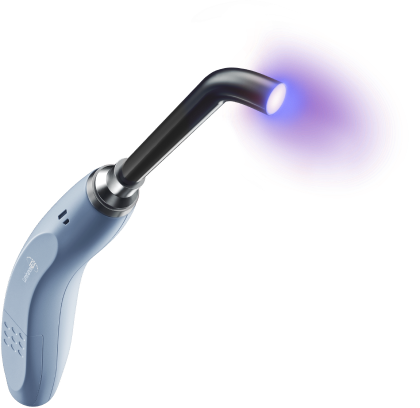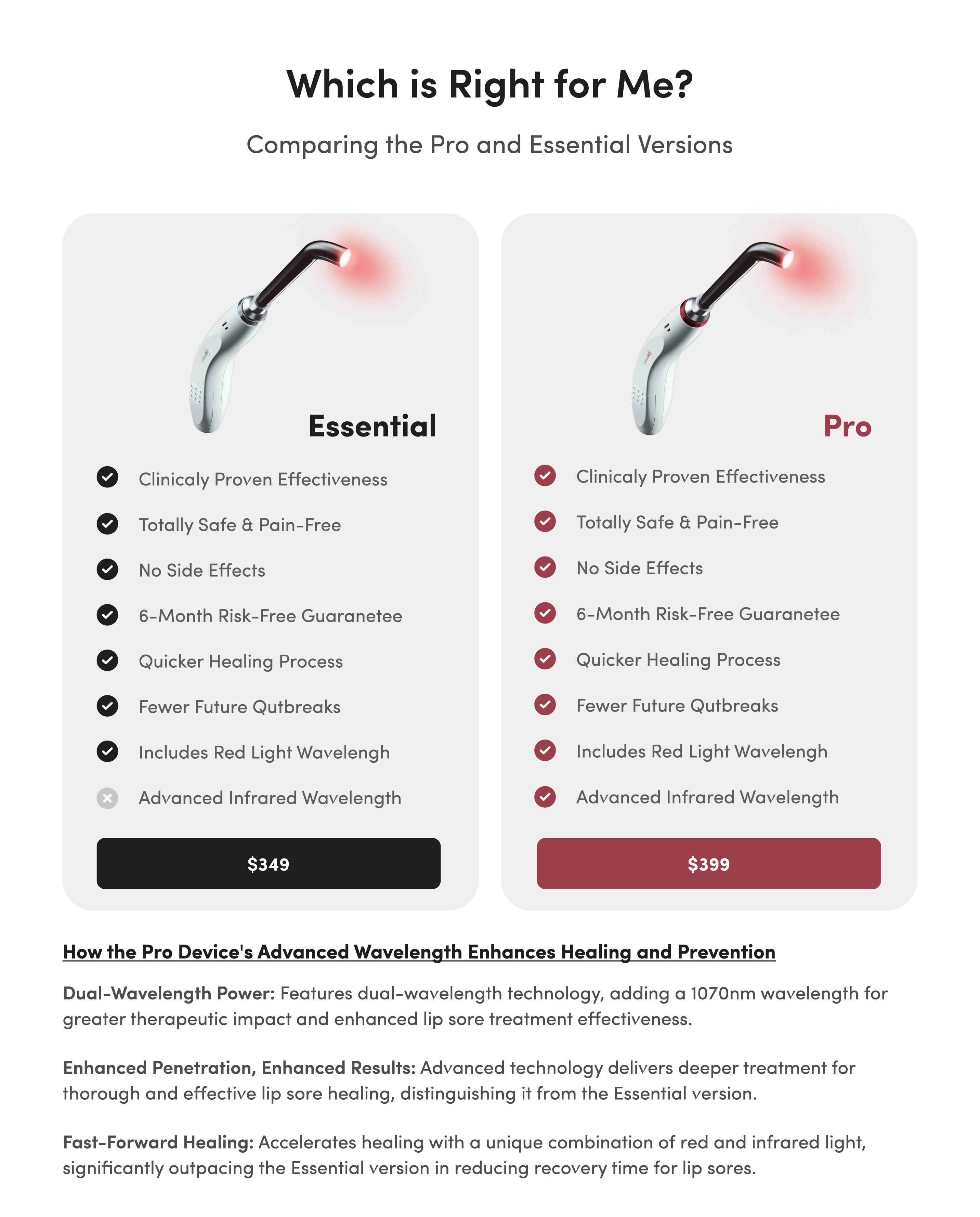White Spots on Gums: 5 Possible Diagnoses
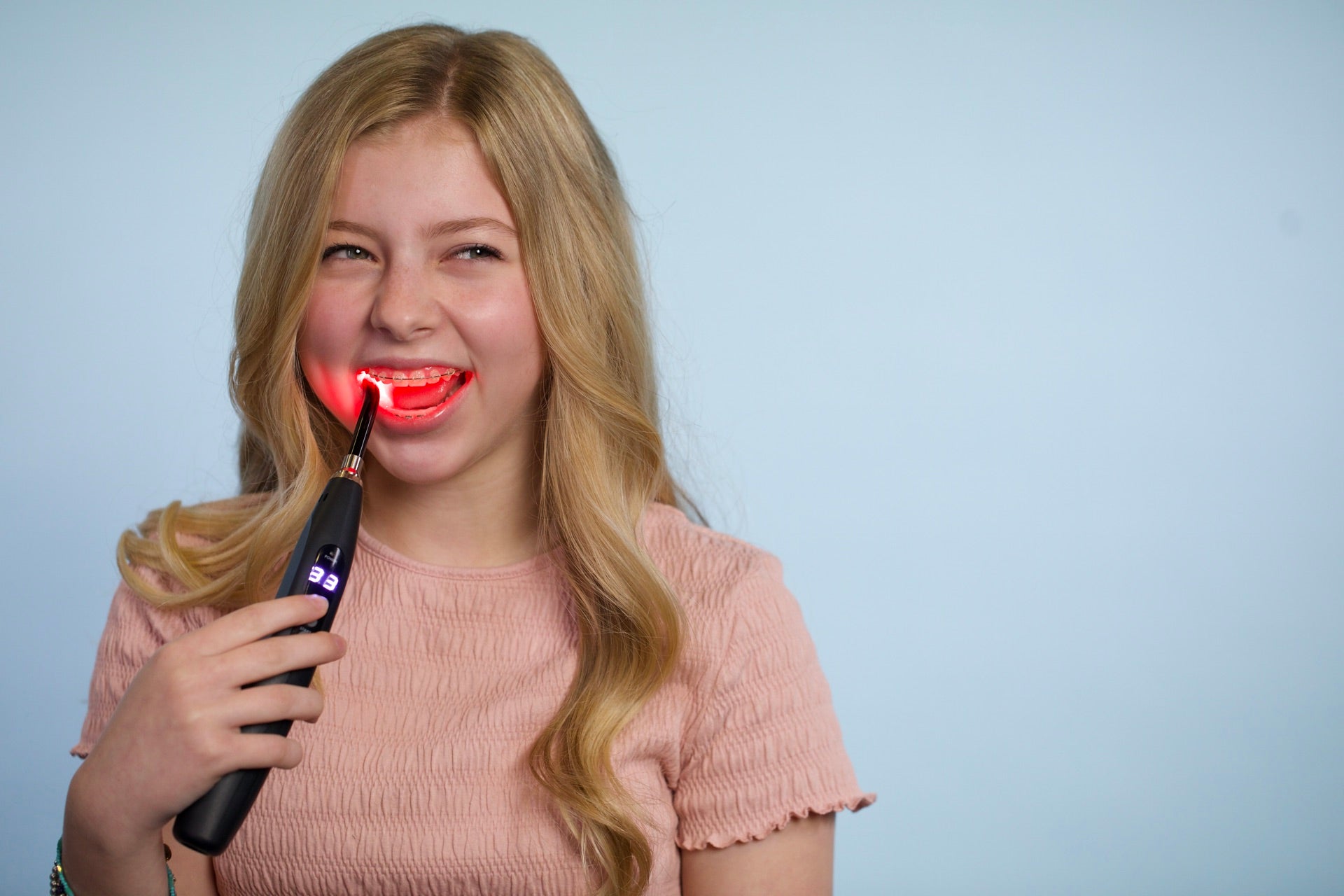
You’re brushing your teeth, staring absently into the mirror as you contemplate the busy day ahead. But something suddenly catches your eye. It’s a flash of white on your gums, a white spot that you don’t remember seeing before.
What could be causing the white spots on your gums? Don’t panic yet. White spots on gums are a symptom caused by several conditions, many of which don’t threaten your overall health and wellness. Take a closer look at your white spots and consider which of the following conditions best describes what you’re seeing in the mirror.
Canker Sores
What Are Canker Sores?
Canker sores, or aphthous ulcers, are shallow white lesions with inflamed pink borders that occur inside the lips and mouth. The sores are typically 1-4 mm in size, but complex sores can be larger than 5 mm.
Though they are often confused with cold sores Herpes simplex virus 1 (HSV 1), canker sores are not contagious. Raw canker sores make it challenging to eat, sleep, and speak; even with traditional therapies, they often take weeks to heal.
What Causes Canker Sores?
There’s no definitive cause of canker sores. However, many contributing factors are believed to trigger canker sores more frequently. The most common canker sore triggers include:
- NSAIDs (Motrin®, Aleve®)
- Vitamin deficiencies (low vitamin B12 or iron)
- Foods high in citric acid, such as oranges, tomatoes, and some cheeses
- Underlying autoimmune conditions (HIV/AIDs, Lupus, Behçet's disease)
- Chronic high stress or a traumatic life event
- A family history of canker sore outbreaks
- Viral infections or bacteria in the mouth
Teens and young adults are more prone to frequent canker sore outbreaks than others, but this condition plagues males and females of all ages.
How to Treat Canker Sores
Light Therapy
Canker sores can cause weeks of discomfort during and after the healing process, even with the help of home remedies. Treatment with high-powered, medically optimized light is a gentler, safer, and more reliable way to alleviate even your worst canker sores.
Research proves the profound effects of high-powered light for canker sore prevention and treatment. Many studies show that applying medically optimized light to canker sores significantly reduces pain. In one study, the group that received treatment immediately experienced a 92% reduction in pain versus a 1% reduction in the placebo group.
The Luminance RED Mouth Treatment Device is a breakthrough, handheld class II medical device designed to help you manage sores and ulcers inside the mouth or on the tonsils. This device makes it easy to shine concentrated wavelengths of pain-free, medically optimized light directly onto canker sores and the areas where they often develop. Whether you need to treat existing canker sores or prevent future canker sore outbreaks before they start, the Luminance RED makes it possible.
Milk of Magnesia
Some common household products can also help alleviate canker sore discomfort. Milk of magnesia, best known by the brand name Maalox®, can be blended with Benadryl® or another antihistamine to reduce the pain caused by your canker sore.
Milk of magnesia is an antacid that coats your canker sore to prevent irritation, while antihistamines treat inflammation symptoms and create a sedative effect. If your canker sore is uncomfortable and prevents you from sleeping, this combination is a helpful solution.
Chamomile Compress
Chamomile has been a favorite natural remedy since ancient times. This herbal remedy is known to help heal wounds and ease the pain with its anti-inflammatory and antiseptic compounds. You can use a chamomile tea bag as a warm compress to soothe angry canker sores or rinse freshly brewed chamomile tea in your mouth for the same effect.
Antimicrobial Rinse
Your dentist or doctor may also prescribe an antimicrobial rinse if you’re susceptible to canker sores. Listerine, Peridex, and Periogard are all popular options. They reduce the number of bacteria and microbes in the mouth, which can protect the gum tissue from canker sores in the future.
Oral Thrush
What Is Oral Thrush
Oral thrush, also known as oral candidiasis, develops when a Candida fungus starts to accumulate on the lining of the mouth. Candida itself isn’t dangerous, but an excess of this fungus does cause unpleasant side effects.
You can recognize oral thrush from the following symptoms:
- Creamy white lesions on the tongue, inner cheeks, the roof of the mouth, and gums
- Slightly raised lesions that look like cottage cheese
- A cottony feeling in the mouth
- Loss of taste
What Causes Oral Thrush
Oral thrush thrives when the immune system fails to maintain a balance between “good” and “bad” organisms in the body. If the protective mechanisms of your immune system fail, candida fungus rapidly reproduces until an oral thrush infection appears. People with diabetes and people on chemotherapy for cancer have a higher risk of oral thrush.
How to Treat Oral Thrush
Oral thrush is best treated with measures that support a healthy and active immune system in the body and mouth:
- Maintain diligent oral care, such as brushing and flossing daily
- Limit high-sugar foods and drinks since they encourage the growth of candida
- Get your blood sugar under control
- Rinse your mouth with water after eating
Your doctor may recommend medical treatment for severe oral thrush, such as an oral antifungal prescription or mouthwash.
Oral Lichen Planus
What Is Oral Lichen Planus?
Oral lichen planus is a chronic inflammatory condition. It causes white, lacy patches to develop inside the mouth. Red, swollen, and open sores may also appear, causing pain and discomfort. Signs of oral lichen planus appear throughout the entire mouth, including inside the cheeks, on the gums, tongue, palate, and inner tissues of the lips.
What Causes Oral Lichen Planus?
Unlike the herpes virus, oral lichen planus is not contagious. It is caused by an immune system disorder that attacks healthy cells in the mouth. Doctors don’t know what triggers this backward immune response, but fortunately, it can be managed with attentive oral care.
How to Treat Oral Lichen Planus
There’s no cure for oral lichen planus, but your doctor can help you develop a treatment plan to minimize symptoms and improve your body’s immune response. Common treatments include corticosteroids to reduce inflammation calcineurin or inhibitors to control the immune system from attacking healthy cells, but these medications must be used with caution due to their side effects.
It’s important to inform your doctor if you notice signs and symptoms of oral lichen planus in your mouth, since this condition may develop into mouth cancer if not treated and monitored properly.
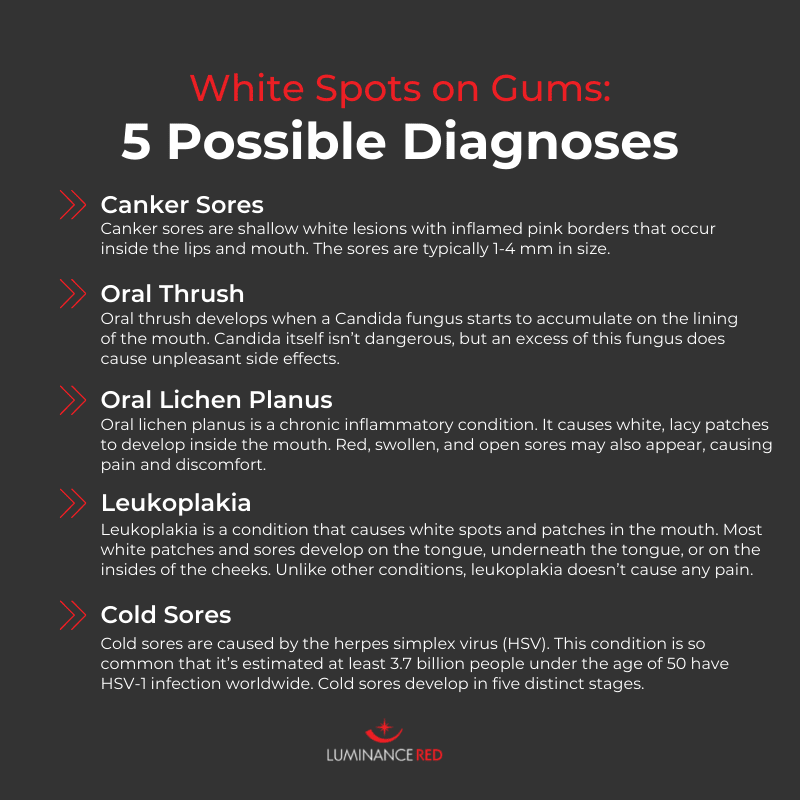
Leukoplakia
What Is Leukoplakia?
Leukoplakia is a condition that causes white spots and patches in the mouth. Most white patches and sores develop on the tongue, underneath the tongue, or on the insides of the cheeks. Unlike other conditions that cause white spots on gums, leukoplakia doesn’t cause any pain.
This condition does carry a higher risk than oral thrush and lichen planus because it can eventually develop into oral cancer. In fact, up to 17.5% of people with leukoplakia develop squamous cell carcinoma within 15 years.
What Causes Leukoplakia?
Fortunately, most causes of leukoplakia are entirely preventable:
- Heavy smoking
- Use of chewing tobacco
- Heavy use of alcohol
How to Treat Leukoplakia
As soon as leukoplakia is identified, it must be aggressively treated to prevent the development of cancer:
- Stop using tobacco and alcohol
- Eat a fruit- and vegetable-rich diet
- Use vitamin A-based retinoids to reduce lesions
For severe cases, lesions can be removed with surgery, treated with light-activated cancer drugs, or frozen using cryotherapy.
Cold Sores
What Are Cold Sores?
Cold sores are caused by the herpes simplex virus (HSV). This condition is so common that it’s estimated at least 3.7 billion people under the age of 50 have HSV-1 infection worldwide. Cold sores develop in five distinct stages.
These five stages transition through tingling, blistering, weeping, crusting, and healing:
- An itching and burning feeling develops underneath the skin to indicate that a cold sore is forming
- Fluid-filled cold sore blisters develop
- The blisters burst or “weep” and release their fluids
- The core sores dry up into a yellow and brown crust
- Cold sore scabs heal; the skin around the mouth looks healthy once again
The herpes simplex virus is highly contagious, especially when oozing blisters exist.
What Causes Cold Sores?
After your first episode of herpes infection, the virus remains dormant in nerve cells in your skin. It may lie inactive for weeks, months, or even years. Cold sores recur when triggered by external factors, including:
- Stress
- Fatigue
- Hormonal changes
- Another viral infection
- Injury to the skin
- Unusual exposure to sunlight and wind
How to Treat Cold Sores
What can you do to heal your cold sore faster than expected? Try these techniques and strategies to escape the misery and pain of cold sore blisters.
Over-the-Counter and Prescription Options
Orajel™, for example, is an over-the-counter topical gel that provides instant and targeted pain relief in and around the mouth. The Orajel™ Cold Sore formula includes six active ingredients shown to treat the pain, itching, and dryness caused by cold sores. It can be applied up to four times a day to help you stay comfortable through an outbreak.
Abreva® is another over-the-counter cream used to treat cold sores and fever blisters, but it works differently. Abreva® contains the only non-prescription ingredient approved by The United States Food and Drug Administration (FDA) to accelerate the cold sore healing process. This OTC treatment can be used up to five times a day, or as directed by your doctor.
When over-the-counter strength won’t cut it, consider an antiviral prescription like Acyclovir. It’s available in tablet, capsule, or liquid form to decrease the pain and increase the healing time of sores and blisters caused by genital herpes and cold sores. This antiviral medication stops the spread of the herpes virus in the body, which in turn helps outbreaks heal.
The Luminance RED Light Therapy
What if you could minimize the symptoms of cold sores and prevent them in the future, all without a visit to the drugstore? The Luminance RED cold sore treatment makes this easier than ever before!
The light from Luminance RED is metabolized by your skin and turned into cellular energy, which your skin uses to heal faster and force the herpes virus into hibernation. Clinical data conclusively shows that this type of treatment reduces healing time by up to 50% so that you can get back to living your life.
The Luminance RED can be used before, during, and after the outbreaks to fight symptoms of HSV-1 and HSV-2. Thanks to the precise design of Luminance RED, every treatment provides the exact wavelength of light necessary to maximize treatment efficiency and prevent cold sore outbreaks.







